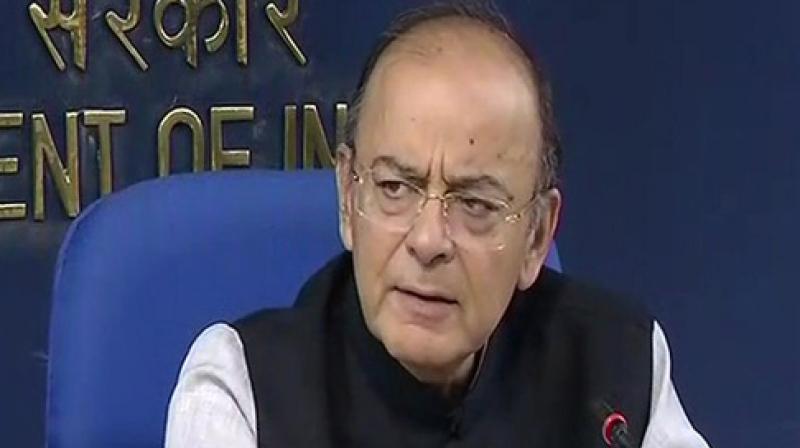Can't allow mockery of law: FM after Cabinet clears bill to seize fraudsters' assets
The law will apply to defaulters who have an outstanding of Rs 100 crore or more and have escaped from the country.

New Delhi: In a bid to tighten noose around fugitives like diamond merchant Nirav Modi and liquor baron Vijay Mallya, the Cabinet on Thursday approved the Fugitive Economic Offenders Bill that provides for confiscating all assets of absconding fraudsters and loan defaulters.
The proposed law aims to impound and sell assets of Nirav Modi-type escapees with a view to quickly recover dues. The law will apply to defaulters who have an outstanding of Rs 100 crore or more and have escaped from the country.
Also read: Economic offender Bill gets clearance
Finance minister Arun Jaitley said the Bill, which will be taken to Parliament for approval in the second half of the Budget session beginning March 5, defines a fugitive offender as someone against whom a court has issued an arrest warrant for a scheduled offence and who leaves or has left India so as to avoid criminal prosecution, or refuses to return to India to face trial.
“We can’t allow people to make a mockery of the law,” Jaitley said.
The bill was initially envisaged in Budget 2017 to bring to task wilful defaulters such as Vijay Mallya, who left India in March 2016 and is yet to return as there are ongoing cases of fraud and money laundering against him.
Although the bill has been in the works since last year, the urgency for its introduction increased after the recent Rs 12,636 crore scam, perpetrated by jewellers Nirav Modi and Mehul Choksi, hit Punjab National Bank.
Mallya’s spokesperson and Choksi’s lawyer declined to comment. Calls and messages sent to the lawyer representing Modi remained unanswered until press time.
As per the provisions of the bill, the government will be able to confiscate all the assets of an offender both within and outside the country and the confiscation will not be limited to properties that are proceeds or profits of the crime. The bill also provides for confiscation of benami properties. The offender will not be able to pursue any civil cases in India, a government statement said.
Explaining the need for these provisions, Jaitley said, “We see that a new set of assets of the fugitives are discovered that are not with banks. There has to be a mechanism that we can immediately take over these assets.”
For confiscation of overseas assets, the government will set up a mechanism for international cooperation.
“For attaching international assets, we need the help of overseas authorities. India will need to make appropriate arrangements with other countries to confiscate these properties. That will be the next avenue of cooperation,” Jaitley said.
The bill provides for an administrator to be appointed to manage and dispose of the confiscated property.
“If at any point of time in the course of the proceeding, prior to the declaration, the alleged fugitive economic offender returns to India and submits to the appropriate jurisdictional court, proceedings under the proposed act would cease by law,” the statement said, adding that all necessary constitutional safeguards in terms of providing a hearing to the person through counsel, allowing him time to file a reply, serving notice of summons to him, whether in India or abroad and appeal to the high court have been provided for.
“It is a step in the right direction. Many high net-worth individuals have left the country even when there are arrest warrants issued against them and the government has not been able to bring them to task,” said Rajesh Chakrabarti, professor and vice-dean at the Jindal Global Business School.

